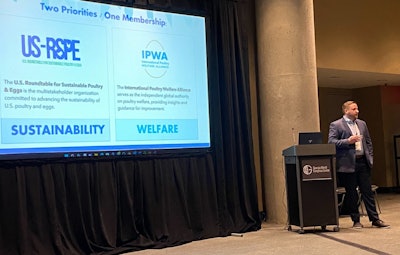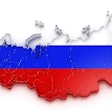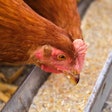
With BlackRock, the world’s largest institutional investor, telling companies that they cannot afford to ignore sustainability, poultry and egg producers must take the issue seriously. However, for many, the issue can be overwhelming, with varying definitions and buzzwords that simply make the issue more complicated.
This was the view of Ryan Bennett, executive director of the U.S. Roundtable for Sustainable Poultry and Eggs (US-RSPE), an organization dedicated to continuous improvement in sustainability for the supply chain, presenting at the International Production and Processing Expo (IPPE) 2024.
The US-RSPE offers companies throughout the poultry value chain the ability to navigate a complex environment, ascertain where they are and where they can go on their sustainability journey.
“We’re not here to tell people how to run their sustainability programs, or their welfare programs,” Bennett said, “but we are trying to be a guidepost, a resource for the industry, for the full supply chain”.
The organization has developed a voluntary, comprehensive sustainability reporting structure created specifically for the chicken, turkey and egg value chains. This framework equips companies with a structure to better communicate with stakeholders about the overall sustainability of U.S poultry products and to create a clearer picture of how these products are produced.
Bringing stakeholders together
Bennett explained: “We’ve seen a lot of different sustainability issues, inside agriculture and outside, fail, because they are only doing it to push one part of the supply chain.
“Within food and agriculture, I’ve seen plenty of retail and foodservice focused efforts that only go so far, and I’ve seen it on the production side, where, maybe, their customers and consumers are not engaged”.
The US-RSPE, however, brings numerous stakeholders together to measure sustainability and welfare. It groups its members into five areas, comprising: growers, integrators, allied suppliers, food and retail companies, and civil society.
Bennett continued: “We try not to leave anybody out and to get everybody together and agree on how we’re going to pursue, measure, communicate and advance sustainability and animal welfare by having that kind of multi-stakeholder structure in both how we are governed and how we work through our members”.
The sustainability framework measures and voluntarily verifies sustainability in the areas that matters, enabling people to make educated decisions, helping companies to present themselves and to talk about areas that they may not have realized are sustainability related, and this can help them present a better picture of themselves when their sustainability is examined.



















